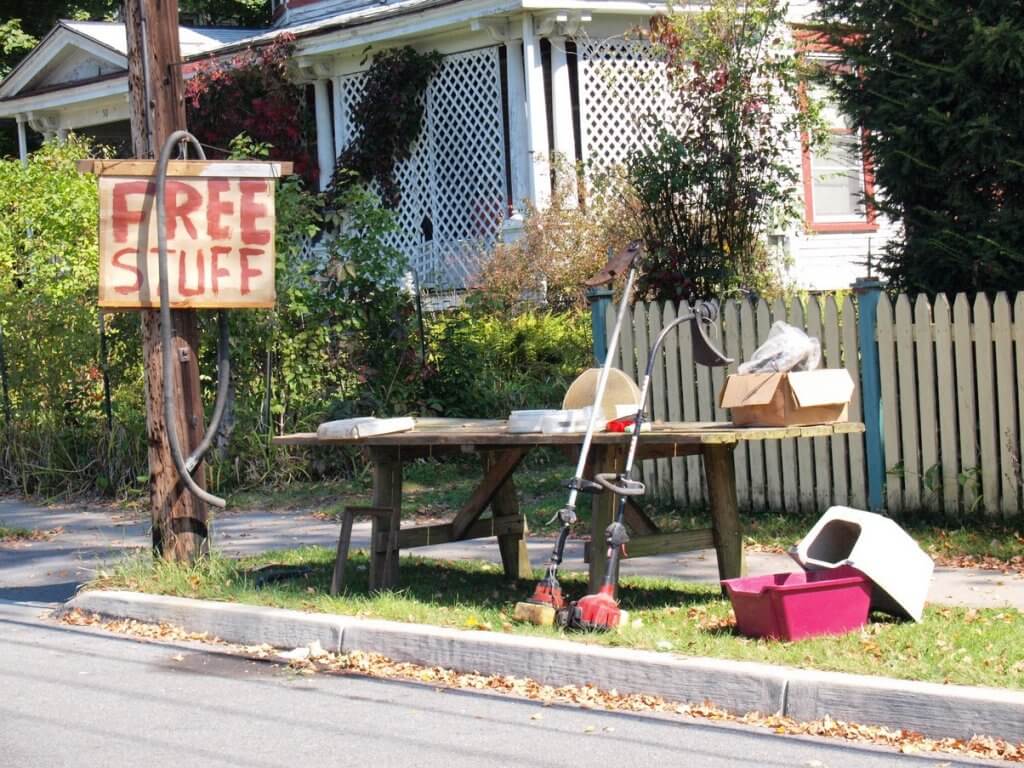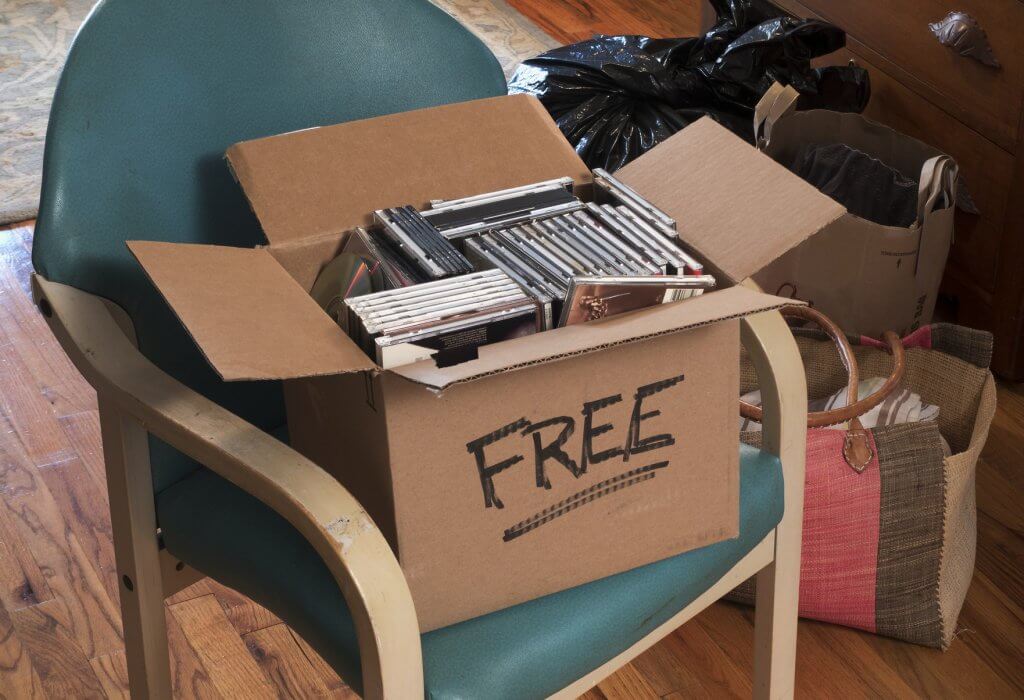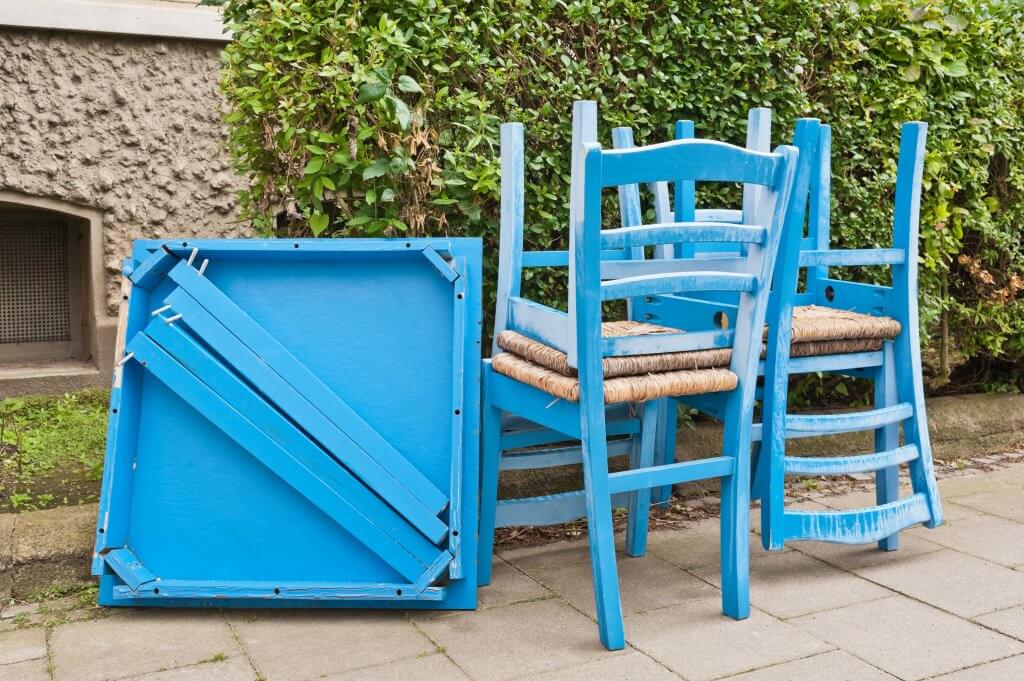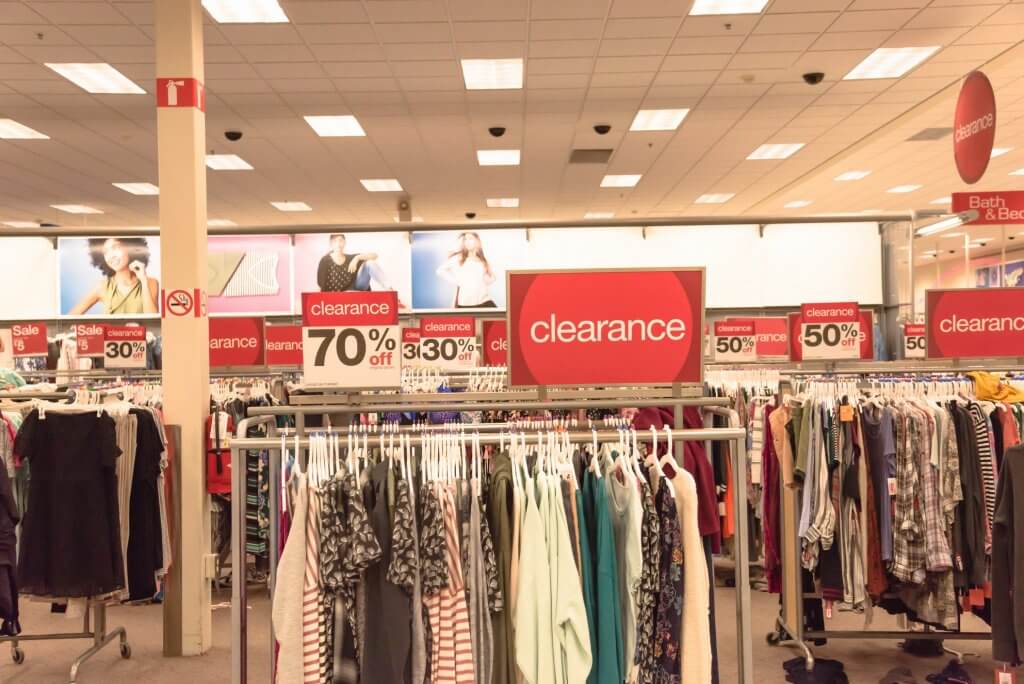I’ve always been good at finding great deals. The problem came when I accumulated so many free or cheap things that I could no longer park in my three-car garage. Let’s look at why you should be careful with cheap and free stuff.

Why You Should Be Careful With Cheap and Free Stuff
While cheap and free stuff can sound like a great deal, it often isn’t. Here are the reasons why you should be careful with cheap and free stuff.
It still costs you
Even if you get an item for free it still costs you in some way. It can take up space and breathing room in your home. It can take up time, effort, and energy if you’re researching, driving, and picking it up.
You can have a house full of free stuff but those items will still take up your time in cleaning, maintaining, repairing, and moving them.
There is a cost associated with every thing you own even if you paid nothing for it.
Before you take anything that is ‘free’ remind yourself that free is never really free and what it will cost you.

The impact it has on your home
Any time you acquire an item, whether you paid any money for it or not, it either adds to your life or becomes a burden. Often it is a combination of the two where it briefly added to your life but then becomes burdensome.
Whether you paid good money for items, got great deals, or even managed to get them free they can still cause your home to look and feel cluttered.
Your peace is worth a lot, so don’t fill up your space with great deals and free stuff to the extent that you no longer love your home. You can feel suffocated by too much of anything.
The burden of clutter
Owning too much and trying to maintain it all becomes exhausting. Once you have gone past your clutter threshold you feel burdened by the clutter in your home.
Cheap and free are common contributors to the clutter problem. These items usually aren’t considered as carefully before they come into your home.
When something is cheap or free you overlook these details since they aren’t costing you money. However, once they end up landing you in a house full of clutter, you feel the weight of those decisions and have to take additional time to declutter them.
Some items aren’t so easy to give away or donate. If you receive cheap or free furniture it may not be so simple to offload it.
I recently helped a client get rid of two side tables. I had to drive to 3 different donation centers to find one that would take them. Since many places are overrun with donations they’ve become more particular with what they will take.

Serve as a reminder
Have you picked up any cheap or free items with the intent to upcycle or rehab them? Perhaps years later those same items are still waiting on you to do that project.
In this case, the free and cheap items are only serving as a reminder of the projects you haven’t gotten to yet. And if you’ve had them for years the odds are it is no longer a project that you’re excited about doing or you would’ve already done it.
The Pinterest dreams you had for how you’d revamp that piece of furniture and make it awesome haven’t come to fruition and now you just feel like a failure instead. That’s not something you worth hanging onto.
The fact that you didn’t pay money for the free stuff doesn’t mean that it isn’t impacting your life negatively. Whether you paid for it or not, things become clutter when you don’t love and use them.

Where does cheap and free stuff come from?
There are a variety of places to find cheap and free stuff. You can find free items on the side of the road, from listings online, offered by friends or family members, and giveaways at conferences or events.
There are more options than that, but those are the main ways I’ve found free items. Cheap items can be found the same ways or also can come from huge sales from stores or at places like Dollar Tree.
In all of these situations, you get to make the decision whether to pursue the cheap or free thing or to say no thanks. Let’s look at the thought process for evaluating whether or not to take an item.
The mental bargaining process
When faced with a cheap or free item, what’s your inner dialogue? Sometimes the feeling of FOMO takes over and our fear of missing out causes us to get things we don’t truly want or need.
With sales, in particular, it’s common to focus on how much money you’d be saving by buying that item at its sale price. The tag shows you how it was originally $60 now marked down to just $15. If you’re a deal hunter, that can be hard to say no to.
But consider if you would really be saving $45 or wasting $15 on an item you don’t really love or need.
If the item is free you may be tempted to snatch it up before someone else does, but if it doesn’t make sense for your home and life, choose to pass. You can end up with a garage full of great stuff that doesn’t actually fit in your home that someone else could have really appreciated and used.
Our perception of value can get us into trouble with things that are cheap or free. We consider about what we think the item is worth vs how much it costs. However, a deal isn’t a deal if you aren’t going to love it and use it.
The value of an item is not in how much you did or did not spend, but rather how well it worked for you.
Before bringing cheap or free items into your home, ask yourself these decluttering questions. Save yourself the hassle of decluttering them later by asking these clarifying questions beforehand.

The thrill of deal hunting
Some of you will look at the picture above and you’ll want to know which Target location this picture came from and if they still have things in your size. If you’re like me, you’re a deal hunter to the core because you’re frugal and want to save money.
I’ve had to work to balance my desire for simplicity with my love of frugality. They don’t always work together.
Deal hunting can be addicting. You get a rush when you feel like you got an awesome deal. But that feeling wears off and you don’t want to later wonder if you made a poor purchasing decision.
To avoid the whole process, decide to shop more intentionally. Don’t shop for fun. Don’t follow free groups on Facebook if you’re tempted to take all the things.
Really consider beforehand if this is something you would pay good money for. If the answer is no, then it’s not for you.
Just because something is cheap or free doesn’t mean it earns a place in your home and life.
You are the gatekeeper of your home. Be very selective with what you allow in. Your home should be your sanctuary, not a storage space.
Overwhelmed with the cheap and free stuff in your home? Sign up below to get The Simplicity Habit weekly tips on simplifying and decluttering. You’ll also get the Your Home Decluttered Jumpstart which includes a list of 100 easy items to declutter and 12 high impact areas to declutter quickly. Start decluttering today!



A fool and their money are soon parted.